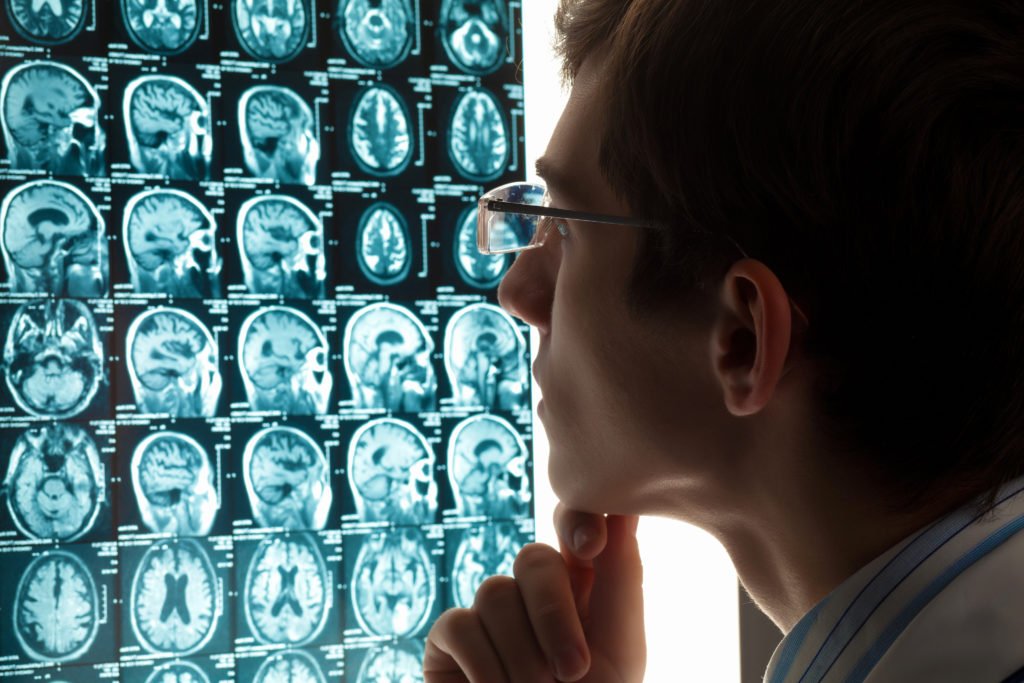
Traumatic brain injuries occur when a collision or impact harms the brain. Frequently, injuries occur when the brain hits the inside of the skull and is damaged. Traumatic brain injuries are very common in car accidents and falls, and are a leading cause of death. Victims may suffer injuries ranging in seriousness from headaches and momentary loss of consciousness to paralysis, permanent physical or mental disability, and death.
What are Traumatic Brain Injuries?
Traumatic brain injuries (TBIs) can occur when the head is hit or violently jolted, and the brain is hit against the inside of the skull. TBIs can result in neuron damage, impaired function, and other problems. The effects of a TBI are often serious, but vary greatly depending on the cause of the TBI, the location of the injury on the brain, and the severity of the trauma.
Every year, there are approximately 1000 deaths from traumatic brain injury in South Carolina, roughly 1,300 people will sustain a TBI that causes a life-long disability, and thousands more will visit the emergency room or be hospitalized for brain injuries. About 30 percent of all accident and injury deaths are caused by TBI, and brain injuries are the leading cause of death for those aged one to 44 years.
Mild brain injuries can cause temporary dysfunction, but serious TBIs may involve bruising, torn tissue, bleeding, and serious damage that can result in severe and permanent disability.
Traumatic brain injuries often go undiagnosed and thus untreated. The signs of injury may not appear until days or even months later, and may be quite subtle. For those who have suffered a blow to the head, whiplash in a car accident, or a similar injury, it is important to see a doctor immediately after the accident. Victims should also monitor themselves during the time after sustaining a head injury to watch for signs of a possible TBI.
Causes of Brain and Head Injuries
Traumatic brain injuries are generally caused by a blow or jolt to the head or body, or by an object, such as bullet or piece of skull, penetrating the skull. If an object, such as bullet, penetrates the skull, it can cause severe damage to brain cells, protective tissues, and blood vessels. Injuries resulting in bleeding around the brain, swelling, or blood clots can disrupt a victim’s oxygen supply.
Leading causes of TBI include:
- Falls, whether out of bed, in the bath, down stairs, from ladders, etc.
- Car, motorcycle, or bicycle accidents and accidents involving pedestrians
- Sports injuries, which are generally more serious among youth and especially in high-impact sports
- Assault and violence, including domestic abuse, child abuse, shaken baby syndrome, and gunshot wounds
- Blasts or explosions, which are common in active-duty military
- Birth injuries, which may result from the improper use of forceps or a vacuum, or from oxygen deprivation
Children under age four, young adults between 15 and 24, and the elderly above age 75 are especially at risk for traumatic brain injuries.
Symptoms of Mild Brain Injuries
Brain injuries are generally classified as either mild, moderate, or severe. Mild brain injuries can have varied and serious physical symptoms, including:
- Loss of consciousness
- Dizziness or loss of balance
- Disorientation or confusion
- Headaches
- Drowsiness
- Nausea or vomiting
- Difficulty sleeping or oversleeping
There are also several sensory symptoms that frequently result from a mild TBI, including:
- Blurred vision;
- Changes in the ability to smell;
- Ringing in the ears;
- A bad taste in the mouth;
- Increased sensitivity to sound or light; and
- Other sensory problems or disruptions.
Cognitive symptoms are also common in TBIs, and may include:
- Problems with concentration
- Memory loss
- Sudden mood swings
- Feelings of depression or anxiety
Symptoms of Moderate and Severe Brain Injuries
Moderate and severe brain injuries can result in any of the same symptoms as are caused by mild TBIs. They also involve a risk of more serious symptoms, including:
- Prolonged loss of consciousness
- Coma
- Convulsions or seizures
- Persistent headaches
- Repeated nausea
- Dilation of pupils
- Loss of coordination
- Numbness in the extremities
- Clear fluids draining from the ears or nose
- Problems with waking up
- Profound confusion
- Slurred speech
- Unusual behavior, including agitation or combativeness
TBI Symptoms in Young Children
Infants and young children are especially vulnerable to traumatic brain injuries. Additionally, because of their young age, they may not have the ability to report symptoms such as headaches or confusion to their parents. Parents of children who have sustained injuries or blows to the head must monitor their children for TBI by looking for signs of:
- Changed sleep habits
- Changes in appetite or eating habits
- Unusual irritability
- Distractedness or inability to pay attention
- Sadness
- Persistent crying
- Loss of interest in favorite activities or toys
What Compensation Could I Receive for My Head or Brain Injury Claim?
If a victim sustained a brain injury because of another’s negligence or wrongdoing, the victim can get monetary compensation for his or her harms. Medical expenses can be considerable, especially when the TBI has long-term or permanently debilitating effects. Damages can help to cover costs including:
- Medical and hospital bills
- Physical and occupational therapy to recover lost function
- The costs of long-term care and other support services if permanent damage interferes with daily life
- Lost wages for time the victim was unable to work, and possibly loss of future income for those who are rendered permanently unable to work
Victims may also recover noneconomic damages to compensate them for non-monetary harms. Noneconomic damages may include compensation for pain and suffering, loss of enjoyment of life, loss of physical or mental function, and other losses.
Diagnosis of Head and Brain Injuries
The medical issues surrounding TBI are often complex, but to recover compensation for a traumatic brain injury, the victim must prove that his or her symptoms are the direct result of the injury. A complete legal team will include medical experts to determine the cause and extent of the injury. Medical testing and documentation of the extent of the injury are valuable evidence in proving the origin of the injury and the amount of damages. Experts can also calculate how much it will cost to cover a victim’s medical bills and other needs, whether it is temporary physical therapy or daily care for the rest of a victim’s life.
Joye Law Firm Clinton Office Location
Appointment Only
509 N Broad St,
Clinton, SC 29325
(864)697-1375




























